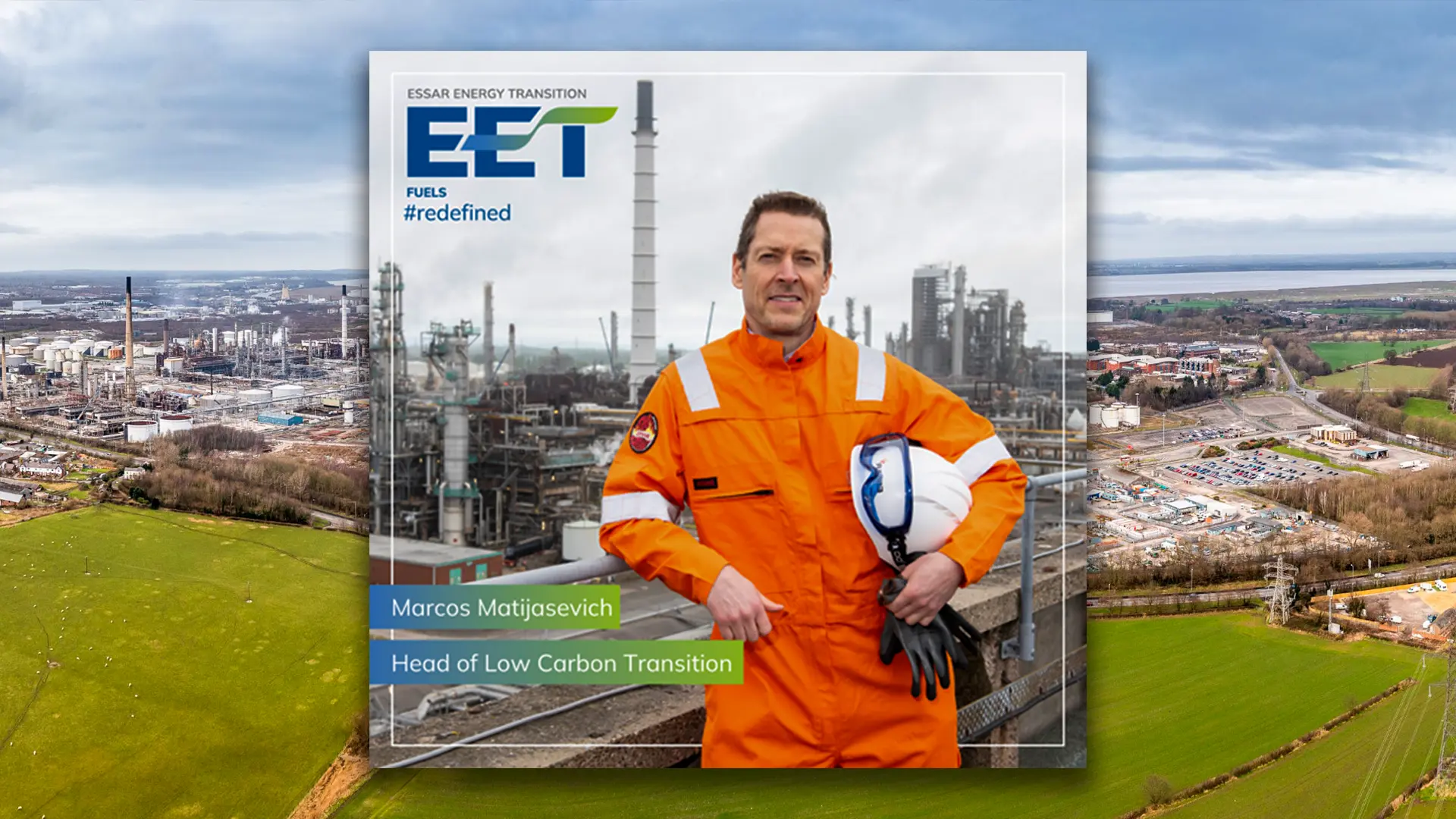An article authored by Marcos Matijasevich, Head of Low Carbon Transition at Essar Oil (UK), published by Energy Business Review
Marcos, a Chemical Engineer from UNL and an MBA graduate from Oxford University is a senior leader in the oil refining and petrochemical industry with expertise in industrial decarbonization. He leads EET Fuels\’ decarbonization strategy, developing low-carbon transition projects to create one of Europe’s largest energy transition hubs. Marcos also serves as Chair of the Hydrogen and CCUS Advocacy Committee within Fuels Industry UK, focusing on transforming the Oil Downstream Sector into a critical enabler for achieving a net-zero United Kingdom.
Through this article, Marcos Matijasevich outlines the transformative steps being taken in the oil refining sector to align with the global shift towards low-carbon energy. Matijasevich shares his motivations for moving into low-carbon projects, emphasizing the pivotal role the oil industry can play in shaping a sustainable future. He highlights the key challenges the UK energy sector faces in adopting low-carbon technologies, such as the need for skilled labour, technological maturity and public acceptance.
Fuelling the Future
My motivation stems from the opportunity the oil refining sector has to shape the future of low-carbon energy while personally playing an active role in defining the path forward. At EET Fuels, we are developing one of Europe’s largest energy transition hubs, producing the low-carbon fuels and chemicals of the future, using the Stanlow refinery as the cornerstone upon which we are deploying leading technologies that are turning our vision into reality. Being at the forefront of this evolution in our industry adds a unique dimension, fuelling our drive to succeed.
“The energy sector can not only achieve net-zero emissions but also spark innovation, elevate workforce skills, and stimulate economic growth, all by embracing lowcarbon technologies”
Overcoming the Low-Carbon Energy Challenges
Undoubtedly, the energy sector faces several significant challenges, but the private and public sectors have been working together for some time to overcome them. Although the UK has yet to capture and permanently sequester its first ton of CO2, substantial investments have been made to develop projects and build/upgrade assets, preparing for effective decarbonisation once Carbon Capture and Storage (CCS) infrastructure is operational.
Many of the challenges revolve around the scale and skill set of the workforce required, the technological maturity of specific processes and public perception–particularly when installing new infrastructure near populated areas. Some projects, particularly those focused on producing CCS-enabled hydrogen or deploying industrial carbon capture technologies from existing combustion processes, require government financial support through emerging business models, adding another layer of complexity.
At EET, we face similar challenges, but our primary focus areas are securing the necessary financial backing and, navigating the lengthy planning process and permitting approvals while developing the projects to and through the execution phase.
Leading the Charge: Key Leadership Traits
To achieve net zero in the private sector, leaders must establish a clear vision and path, focusing on attaining the desired long-term sustainability goals whilst seizing short-term opportunities to build business resilience throughout that transition. Staying attuned to evolving net-zero policies and adopting a new collaborative approach across industries and sectors are also crucial, especially for projects using “first-of-a-kind” technologies that expose developers to novel technical challenges.
Seizing the Moment: Opportunities for the Energy Sector
The remainder of this decade and the next presents opportunities for the oil refining sector in Europe. While the demand for oil products continues to decline, refineries that successfully implement low-carbon technologies to reduce their scope one, two and three emissions will not only survive but thrive, positioning themselves as key suppliers of the low-carbon energy vectors of the future.
The continuous expansion of renewable energy sources is playing a crucial role in transforming our energy matrix, but it will not suffice to achieve a low-carbon power grid by 2030, as the UK government has targeted. This is where our sector can bridge the gap.
We can decarbonize our manufacturing facilities by deploying CCS infrastructure, incentivised through the cluster sequencing process. Using natural gas and off-gas refineries, our industry can generate vast quantities of blue hydrogen at a lower cost than any other low-carbon hydrogen technology available today.
These molecules enable other industries to decarbonise and generate dispatchable low-carbon power to the grid. Creating an integrated ecosystem where carbon dioxide and green hydrogen are readily available paves the way to produce e-fuels that can be blended with traditional fossil fuels as markets transition towards lower-carbon liquid fuels.
By seizing these opportunities, our sector can not only lead the way in achieving net-zero emissions across the industry but also drive innovation, enhance workforce skills and stimulate economic growth.
Pushing Hydrogen and CCUS to the Forefront
Our committee advocates for a range of initiatives to expedite the transition to a low-carbon economy where the oil downstream sector plays a crucial enabling role by providing the low-carbon fuels and chemicals of the future at the lowest possible cost to consumers. This is achieved by harnessing the potential of hydrogen and CCUS technologies, particularly when applied to and/or integrated with existing assets.
As the leading hydrogen-producing sector in the UK today, our advocacy focuses on scaling up our hydrogen production in a low-carbon manner through the application of CCS technology. This helps to decarbonize manufacturing and produce low-carbon fuels and chemicals.
Additionally, we advocate for clear and consistent policies that provide long-term certainty for investors and financial incentives, particularly in relation to carbon pricing, the emerging carbon border adjustment mechanism and business models that impact the deployment of CCUS and low-carbon hydrogen technologies.
Source: Energy Business Review















































